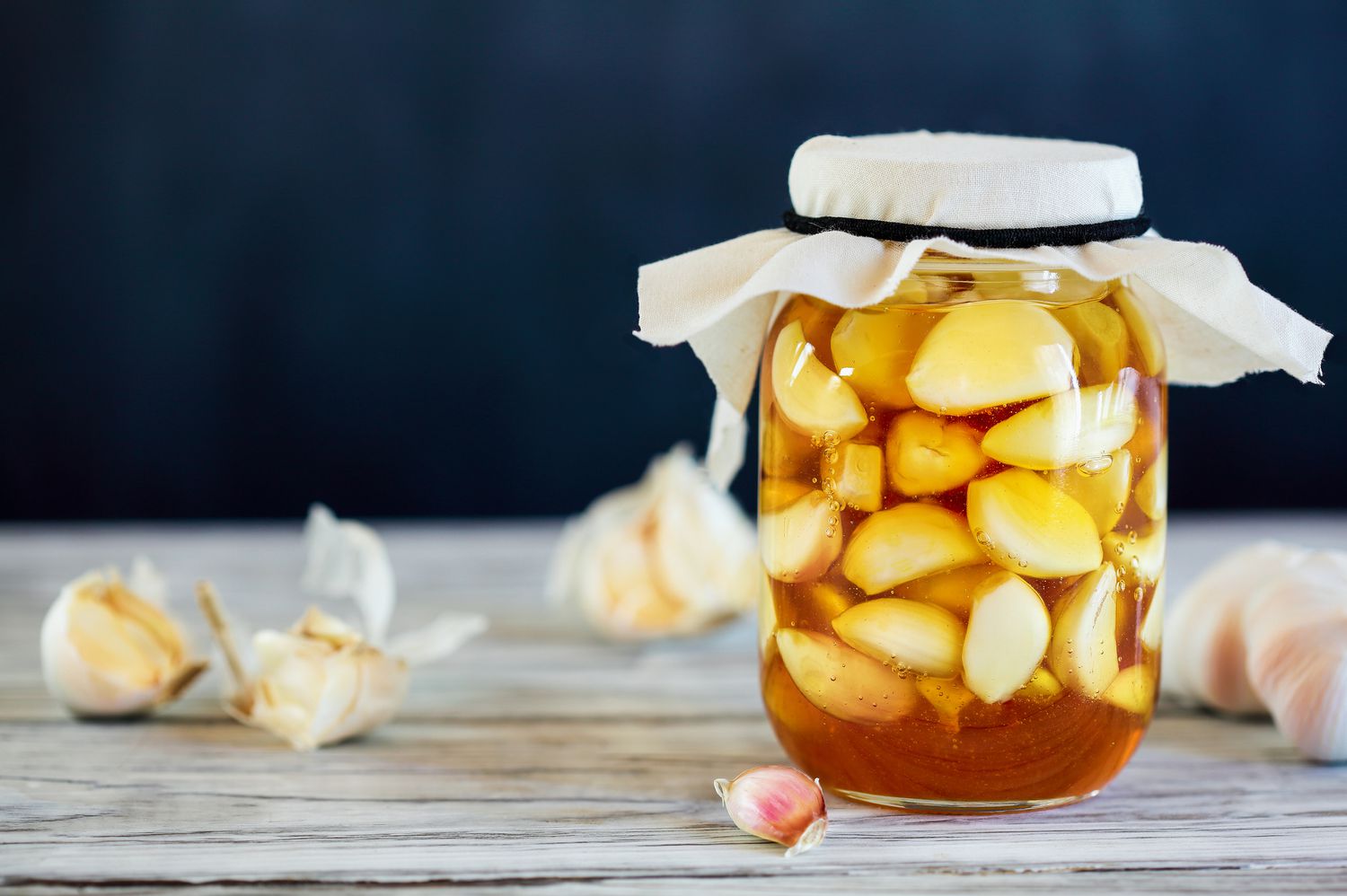Understanding the Home Remedy: Debunking Claims of Fermented Garlic Honey as a Cold Cure

The trend of fermenting garlic in honey is often seen on social media as a cold and flu remedy, but is there any truth to those claims?
Wellness advocates suggest that garlic drenched in honey could potentially prevent—or even cure—cold and flu. Although there is documented research that both garlic and honey exhibit health advantages, no available studies examine the effects of these two ingredients combined for the prevention of colds and flus.
“This latest fad has made the rounds in the media, and there's excessive exaggeration and numerous unverified health assertions about this home remedy,” says Sharon Palmer, a registered dietitian nutritionist based in California.
This concoction is not a new invention by any means; it's an age-old household prescription, cites Rachel Dyckman, a New York City-based registered dietitian nutritionist.
Of note is the fact that most studies exploring the biological behavior and bioactive substances in garlic and honey were performed in vitro (in a laboratory setting), explains Heather Davis, a registered and licensed dietitian nutritionist at Nutrisense.
“In vitro studies have significant constraints with regards to how applicable they are to how the compounds behave in a living organism, or in vivo,” Davis asserts.
The following are the health benefits of garlic and honey, along with critical information about their combination during the cold and flu season.
Garlic and honey each have unique health benefits.
According to Palmer, honey has been utilized as a medicinal treatment for generations.
“Honey is rich in phytochemicals which possess anti-inflammatory, antimicrobial, and antioxidant properties,” she relates.
A 2021 review of numerous studies revealed honey to be effective in alleviating cold symptoms, decreasing cough frequency, and lessening cough intensity. Another 2021 study found honey to enhance the immune system and confer anti-inflammatory benefits. However, it's important to know that not all honey is made the same—one in vitro study singled out manuka honey for its ability to inhibit the flu virus's propagation.
“There appears to be some potential gain,” posits Davis.
Garlic is also identified by research as a source of various health benefits.
A previous study posits that aged garlic extract capsules could boost the number of virus-fighting T cells in your bloodstream. A 2016 research revealed that the extract could reduce cold and flu intensity.
Despite the difficulties of utilizing the compounds in garlic which transform during processing, there is still a potential for wellness.
Garlic's “potential” antiviral virtues were affirmed in a 2020 study, whereas a 2021 report highlighted its antibacterial prowess.
A 2014 meta-analysis of many trials emphasized that there's insufficient evidence to propose that garlic could prevent or cure common cold. However, one study within the report suggested it as a preventive measure.
When it comes to the popularized blend of honey and garlic, there's significantly lesser peer-reviewed published research available and nothing on the fermentation process as a whole.
“Absolute evidence that a concoction of garlic and honey can prevent or deal with colds and flu is still lacking, with most endorsement coming from personal experiences rather than scientific research,” Melinda Ring, MD, executive director of the Osher Center for Integrative Health at Northwestern University, argues.
“Specific research on their joint fermentation is scant,” she adds.
In the case of using garlic and Ethiopian tazma honey, a 2013 study found their combined force more potent against Salmonella, E. coli, and other bacteria in vitro. A laboratory experiment from the same year demonstrated the effectiveness of the combination of garlic juice and Langese brand honey in eradicating strains of Streptococcus and Staphylococcus bacteria.
As far as Palmer is concerned, no scientific research that she knows of validates the health advantages of fermented garlic and honey.
And, as per Davis, there might even be some risks associated with trying the mixture.
“The risk of Botulism in both raw honey and garlic is already documented,” she elaborates. “Honey may be contaminated with pesticides, antibiotics, heavy metals, and other harmful substances.”
Some people should take extra precautions with this mixture: infants below a year should abstain from consuming honey. It also may not be safe for those who are immunocompromised or have allergies to bee pollen, warns Dyckman.
Despite the risks mentioned, Dyckman emphasizes that fermented garlic in honey is a relatively “safe practice with limited downsides.”
“[It] might be worth an experiment,” she concludes.
In light of the absence of solid proof, Dr. Ring recommends people utilize this remedy as a supplementary measure, rather than a primary cure for cold or flu.
If you’re interested in trying it, she recommends doing it as part of a broader health effort and first talk to your doctor, especially if you have any underlying health conditions or are taking other medications including anticoagulants and anti-diabetes drugs.
Davis explained that the best bet for preventing or treating colds and flu is to eat adequate protein, vitamins, and minerals from whole foods. It's also helpful to steer clear of ultra-processed foods like added sugar.
Davis said that staying well-hydrated, getting enough sleep, and avoiding stress all “far more strong science behind them in terms of their ability to support immune health over time.'




